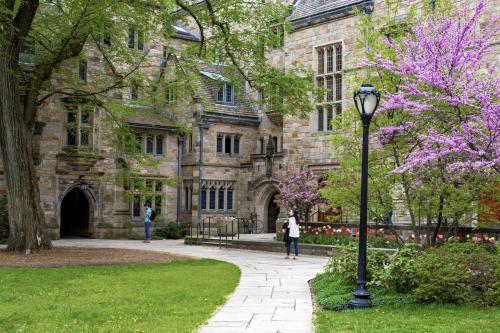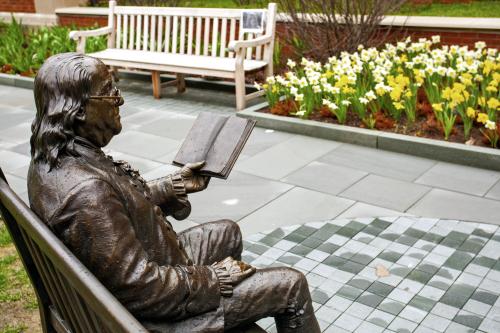Yale’s residential college system, now over eighty years old, is the cornerstone of Yale College’s mission to bring together and educate exceptionally promising students of all backgrounds. Each community contained within the fourteen residential colleges represents Yale in microcosm, offering students a sense of intimate social and intellectual connection, as well as a space of civic and moral responsibility.
The very texture of daily life in the undergraduate community is fundamental to the university’s educational mission. The free-flowing interaction among contemporaries similar in talent and energy but different in background and outlook has a powerful capacity to open, enliven, and expand the mind.
The colleges are also dynamic spaces that enable students to develop creative, intellectual, group, and personal leadership. They feature a wide range of activities and opportunities, from the college student councils to special academic and cultural programs such as Senior Mellon Forum presentations, College Teas, Creative and Performing Arts events, intramural athletic competitions, and beyond.
The heads of college, typically members of the senior faculty drawn from across the university, preside over the colleges and shape their social and intellectual life.
The residential college deans serve as chief academic officers overseeing students’ academic progress. Heads and deans both live in the college and advise students.
Together with the associate heads, college staff, fellows, graduate affiliates, and alumni, they work to make the residential colleges warm and supportive communities where students can explore and experience all that Yale University and the city of New Haven have to offer.
College Affiliation
All incoming undergraduates are assigned to one of Yale’s fourteen residential colleges. Students remain affiliated with their residential college for all four years (and beyond). Yale makes every effort to represent the diversity of the entire undergraduate community within every residential college. In this sense, each college is a microcosm of the larger student population.
Most first-years reside on Old Campus in dormitories designated to specific colleges. Students live in their colleges starting sophomore year. (The exceptions are Silliman, Timothy Dwight, Benjamin Franklin, and Pauli Murray Colleges, where students live in the college proper from their first year.)

